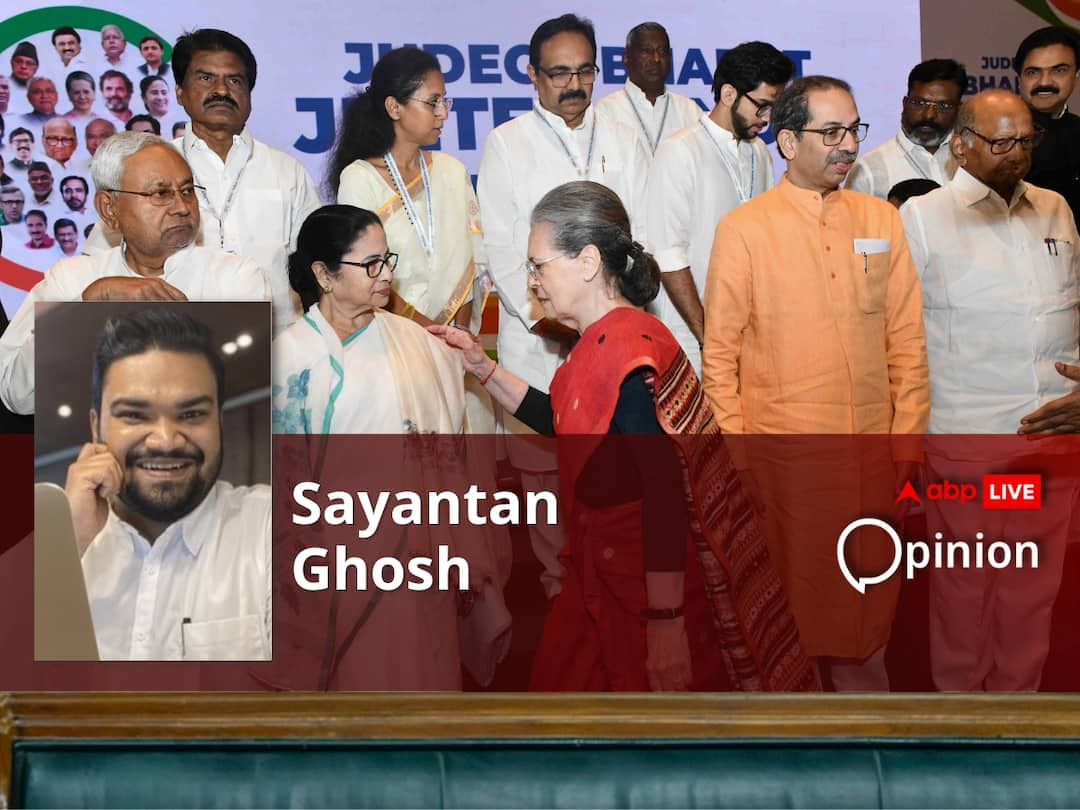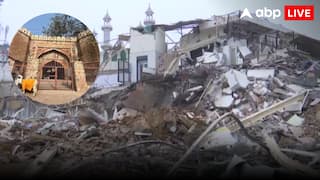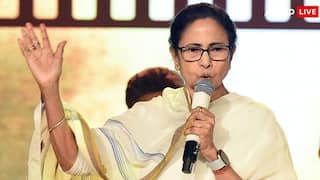Why No Alliance With Congress-CPM In Bengal Will Harm Mamata Banerjee's 2024 Lok Sabha Prospects

One notable highlight of the recent meeting of opposition political parties in Mumbai was the conspicuous absence of West Bengal Chief Minister and Trinamool Congress leader Mamata Banerjee from the concluding news conference addressed by I.N.D.I.A. leaders. Though she later played down her absence, there are talks already that she might be upset with the alliance.
Those who have seen Mamata Banerjee's political career should be familiar with her track record of impulsive decisions, instances of severing partnerships, and even relinquishing ministerial positions in previous instances. Her dissatisfaction, in most cases, stemmed from specific decisions, namely the reluctance of Congress and the Left to engage in any kind of seat-sharing arrangement in West Bengal.
Now, the idea of the mega alliance is to ensure consolidation of opposition votes to stop the BJP juggernaut in the 2024 Lok Sabha elections. They need to avoid a triangular contest at any cost. In West Bengal, therefore, it is necessary for the TMC, Congress, and Left parties to form an alliance to avoid a triangular battle for the Lok Sabha seats. Failure to do so may have significant implications for the political future of Mamata Banerjee, potentially leading to a substantial loss of seats.
But Banerjee wants the alliance partners to let the most dominant oposition party in states fight the BJP with their support. Accordingly, Trinammol would get to contest along against the BJP in Bengal, with I.N.D.I.A. partners lending support. The Congress and Left parties are not known to have warmed up to the idea yet. While it is not known if Banerjee's absence from the joint press conference in Mumbai was because of this, finding a West Bengal truce plan at this point is definitely a major obstacle for the I.N.D.I.A. bloc.
Mamata's Formula And Contradictions
Mamata Banerjee has maintained, since the earliest days of the discussion of a common opposition front, that whichever opposition party is strongest in a given state should take on the BJP individually, and others must support that party. Thus, only the TMC will fight against the BJP in West Bengal, while the Congress and the Left will support Banerjee's party. Similarly, only the Left will fight under this plan from Kerala, and the Congress will support them. In reality, however, the opposition political parties cannot support such a plan.
In West Bengal, for instance, the Congress has been in decline since Mamata Banerjee formed the Trinamool Congress. Today, regardless of the party's existence in Bengal, a significant portion of Congress workers believe that an alliance with the TMC will completely destroy the party.
Similarly, the Left Front led by the Communist Party of India (Marxist), which has ruled West Bengal for more than 35 years, is currently in such dismal condition that they do not even have a single MLA in the state. If they do not contest this election and simply support Banerjee, the party will face a massive existential crisis. In West Bengal, the Left's primary struggle is against the Trinamool and not the BJP, which is why they cannot afford an alliance. This is why the opposition parties have decided to fight this election together "as much as possible" — a phrase that has not only infuriated Banerjee but also increased her apprehension regarding a triangular contest in Bengal.
ALSO READ | Bengal Panchayat Polls: TMC Wins, But At What Cost? Many Cautionary Signs For Mamata Banerjee
Issues of a Triangular Contest
Since Mamata Banerjee's sweeping victory in the West Bengal assembly elections of 2021, the TMC has faced numerous internal and external issues in the state. First, there are numerous allegations of corruption against the party leadership and its government. Second, the alleged teacher recruitment fraud in West Bengal shook the consciousness of the middle class and the lower middle class. There has been a significant increase in law and order in the state over the past two years.
In the 2019 Lok Sabha election, the Bharatiya Janata Party secured 18 of the 42 Lok Sabha seats for the first time, while the TMC could win only 22 seats. This was a significant defeat for Banerjee. The party received approximately 43.3% of the votes, compared to the BJP's 40.7%. It cannot be denied that the majority of the BJP's support came from Hindus, whereas 30% of Bengal's Muslims, who play a crucial electoral role, supported Banerjee. Muslims have been one of the most reliable voting blocs in the TMC, but this has begun to change.
The recent byelection results indicate that the minority vote share is shifting from the TMC to the Congress-Left alliance. Significantly, the TMC lost the Muslim-majority Sagardighi constituency in an election a few months ago. Even though the Congress MLA who won the election in Sagardighi defected to the TMC after the election, Banerjee was indeed alarmed by the bypoll outcome. On the ground in West Bengal, it is evident that minority discontent with Mamata Banerjee is growing, and at this stage, if a triangular contest occurs, it is likely that the Congress-Left alliance will steal a portion of minority votes, leaving the TMC feeling the heat.
ALSO READ | Bengal Panchayat Poll Violence A Wake-Up Call For Mamata Banerjee Leadership And Democratic Values
Dilemma Of Mamata Banerjee
As a former Union minister and now three-time chief minister of West Bengal, Mamata Banerjee has vast political and administrative experience, and she is currently one of the most senior politicians in India. This time, the manner in which she has openly expressed an interest in joining forces with all other opposition parties, including the Congress, indicates that she undoubtly needs some assistance.
It is true that the Trinamool does not exist outside of West Bengal, and hence the seat-sharing formulae of Maharashtra, Tamil Nadu, and others will not affect her. Mamata Banerjee has prioritised a seat-sharing formula for West Bengal. Abhishek Banerjee, the nephew of Mamata Banerjee and the de facto second-in-command in the party, met former Congress president Rahul Gandhi for the first time to discuss the issues, but no truce formula was reached. Mamata Banerjee has maintained a distance from Congress for the past two years, fought Goa and Meghalaya elections that harmed the Congress, and even utterly destroyed the Meghalaya unit of Congress in an overt coup.
In recent months, however, she has modified her stance against the grand old party of which she was once part of. At the opposition meeting in Bengaluru, she reportedly even met with former Congress president Sonia Gandhi. However, no progress was made regarding seat-sharing in Bengal. If the opposition parties decide that there will be no seat-sharing in West Bengal, Banerjee's being part of I.N.D.I.A. is pointless.
ALSO READ | Why Muslims of Bengal Are Becoming Disenchanted With Trinamool Politics
Challenge For I.N.D.I.A.
In the realm of political manoeuvring, the opposition alliance finds itself in a rather precarious position, bereft of the luxury to selectively cherry-picking its battles against the formidable BJP. In West Bengal's political landscape, it is imperative for opposition parties to grasp the significance of a triangular contest. For, it is within this multifaceted electoral scenario that the BJP stands poised to gain a distinct advantage. The opposition parties should recognise the significance of joining forces in their battle against the BJP. The key to success lies in their collective ability to exhibit unwavering unity in the face of reality.
Taking a unified stance against the BJP may seem like a commendable objective, but the lack of clarity surrounding this approach is both perplexing and ambiguous. In the realm of politics, the uphill battle faced by opposition parties in garnering public trust cannot be understated. Convincing the masses of their authenticity and genuine intentions is a formidable task, laden with challenges. In the pursuit of achieving a larger objective, it becomes imperative to make certain concessions and embrace compromises along the way.
The author is a visiting faculty of journalism, a political columnist, and a doctoral research scholar.
(Disclaimer: The opinions, beliefs, and views expressed by the various authors and forum participants on this website are personal and do not reflect the opinions, beliefs, and views of ABP Network Pvt. Ltd.)


























